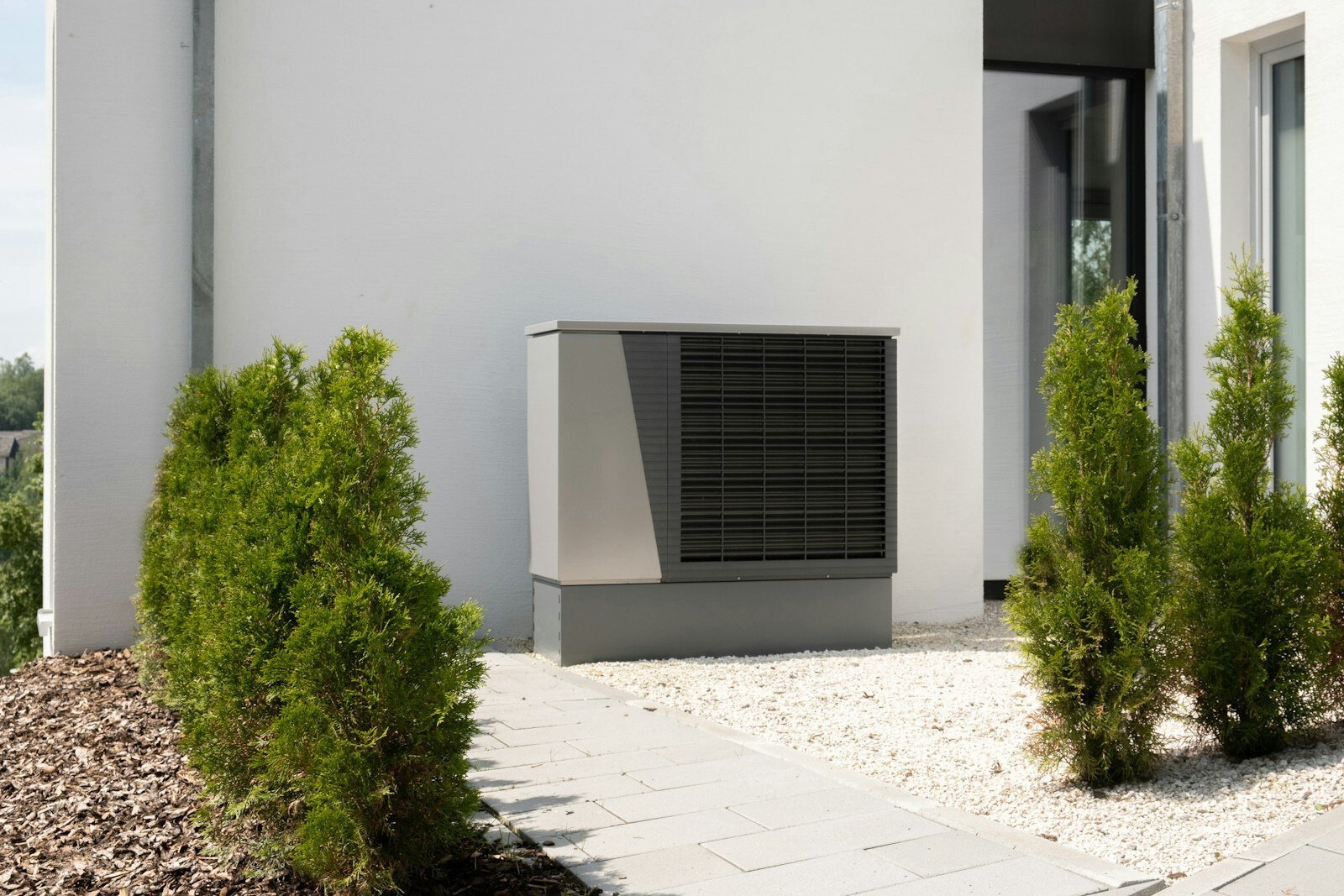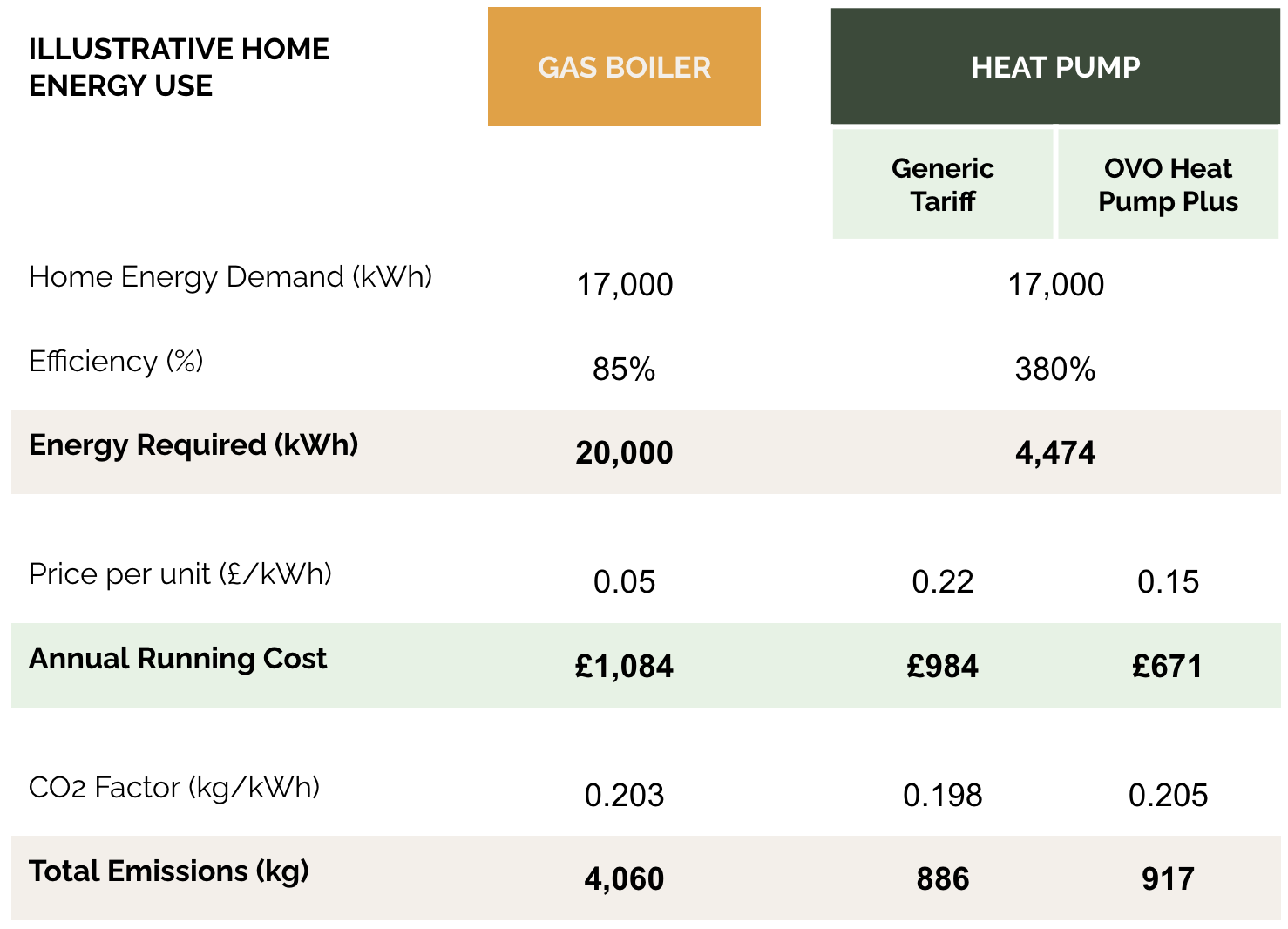
Heat Pumps
The clean heating future
A heat pump moves heat from the outside world into your home. They work in sub-zero temperatures, are quiet and reliable.
Why get a heat pump?
-
Year-Round Comfort
Heat pumps provide year-round comfort and operate in even the coldest climates - it’s why over 60% of Norwegian buildings use them*. They keep your home at a constant temperature, meaning no more arguments over when to turn the heating on!
-
Energy Efficient
Heat pumps use 70% less energy* than a gas boiler (great for your bills) and can be powered with clean, green electricity (great for the planet).
-
Massive Carbon Impact
Heat pump’s use a little bit of electricity to harness the the energy that is naturally occurring in fresh air. This means you don’t have to burn gas, saving a whopping 2.9 tonnes of carbon per year* for the average home. That’s the equivalent of five transatlantic flights!
-
£7,500 Government Grant
The Boiler Upgrade Scheme (BUS) is a grant provided by the government to support the transition to low-carbon technologies. Customers in England and Wales can get £7,500 towards a heat pump upgrade with the BUS*.
-
70% Less Energy - Based on a semi-detached 3 bedroom home with no loft or cavity wall insulation using 20,000 kWh gas annually for heating and hot water. Comparing a 85% efficient gas boiler with a 300% efficient Heat Pump. Source: NESTA
2.9 Tonnes of Carbon - a semi-detached home with an old, G-rated gas boiler would save around 2,900kg of carbon dioxide emissions a year by switching to an air source heat pump – the same as flying from Cardiff to Vancouver and back. Source: Energy Savings Trust.
Five Transatlantic Flights - The total carbon emissions for a flight from London, United Kingdom to New York, New York is equivalent to 0.59 tonnes of carbon dioxide. Source: Travel Navigator60% of Norwegian Buildings - Source: International Energy Agency - The Future of Heat Pumps
How does a heat pump work?
A heat pump is part of a central heating system that harnesses energy from the outdoor air and uses it to efficiently heat water. Just like a boiler, this heated water then circulates through your home's existing network of radiators or underfloor heating to keep your home at a stable, comfortable temperature.
Heat pumps are powered by electricity. They don’t burn natural gas or oil, and they’re not capable of emitting carbon monoxide - or anything else - into your home.
To learn more about the science behind heat pumps, you can read our heat pump deep dive.
Is my home heat pump ready?
Contrary to much of what you read in the news, most UK homes are already set up for heat pumps. About 15 million are ready to switch with only minor upgrades. For example, if your radiators are old or small, upgrading these to newer ones will get you the best results (and lowest bills). Contrary to common belief, you do not need to install extensive insulation to get a heat pump.
Fornax includes any necessary upgrades as standard, so you never have to worry about staying cosy year round.
What will I need to get a heat pump?
A house or flat that you own and want to install a modern, clean heating and hot water system in.
Outdoor space sufficient to situate the heat pump (this could be terrace or garden).
Space for a hot water tank inside your property (for those long showers).
Unsure if you have enough space for any of the above, or have other questions? We’re here to help so get in touch.
I’ve heard there’s a grant?
Residents in England and Wales can get £7,500 towards a new heat pump as part of the Boiler Upgrade Scheme.
When you install your heat pump with us, we’ll apply for the grant for you and deduct £7,500 from your quote.
No paperwork. No hassle. No problem.
Will a heat pump lower my bills?
A well-installed system operating efficiently should lower your energy bills. Unlike a boiler, a heat pump is powered by electricity, so to make meaningful savings, you’ll want to switch to a specialist heat pump tariff. This can drastically reduce the cost of running your system.
An added benefit to factor in is that by ditching gas for increasingly clean electricity, you can turn off your gas supply and save the gas standing charge.
-
This is a purely illustrative example, and while care has been taken to ensure figures are representative these numbers should not be relied upon to make purchasing decisions. A set of calculations bespoke to your home is provided as part of every Fornax Heating Upgrade Survey.
Energy Requirements - Ofgem, Typical 4+ Bedroom Home
Efficiency - Comparing a SEDBUK C-rated Gas Boiler with average Heat Pump System SCOP from https://heatpumpmonitor.org/ (5 July 2024).
Energy Prices - Ofgem price cap from the 1st of July to the 30th of September 2024. Ovo Heat Pump Plus tariff data.
CO2 Factor - Natural Gas Carbon Emissions. Electricity Grid Carbon Emissions.
How much is a heat pump going to cost me?
The good news; less than you might think with Fornax’s Heat Pump Plan.
We offer a range of options designed to help homeowners upgrade to a heat pump with zero hassle.
Curious?
Get an bespoke estimate for your home in just 60 seconds
Learn More











